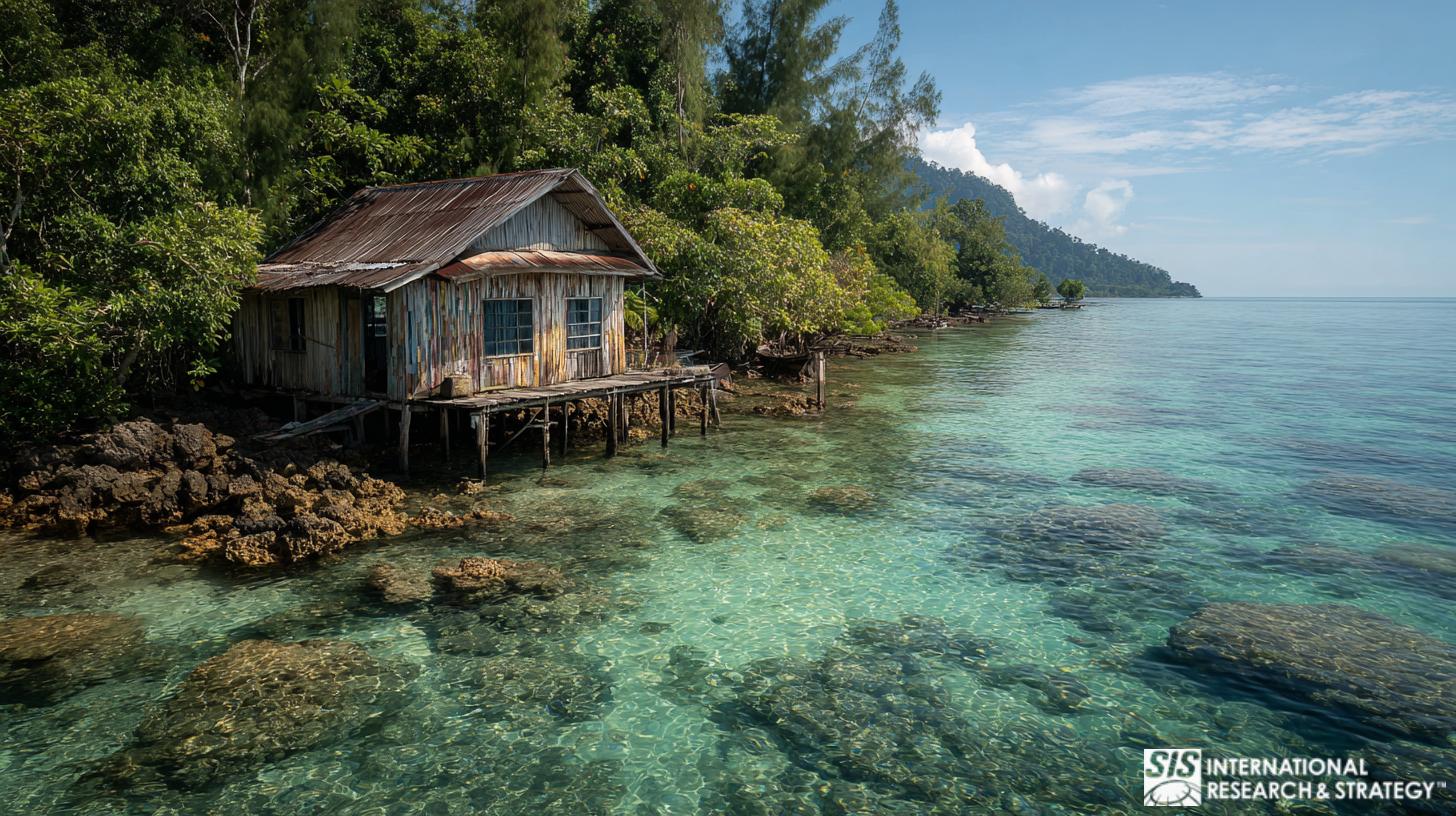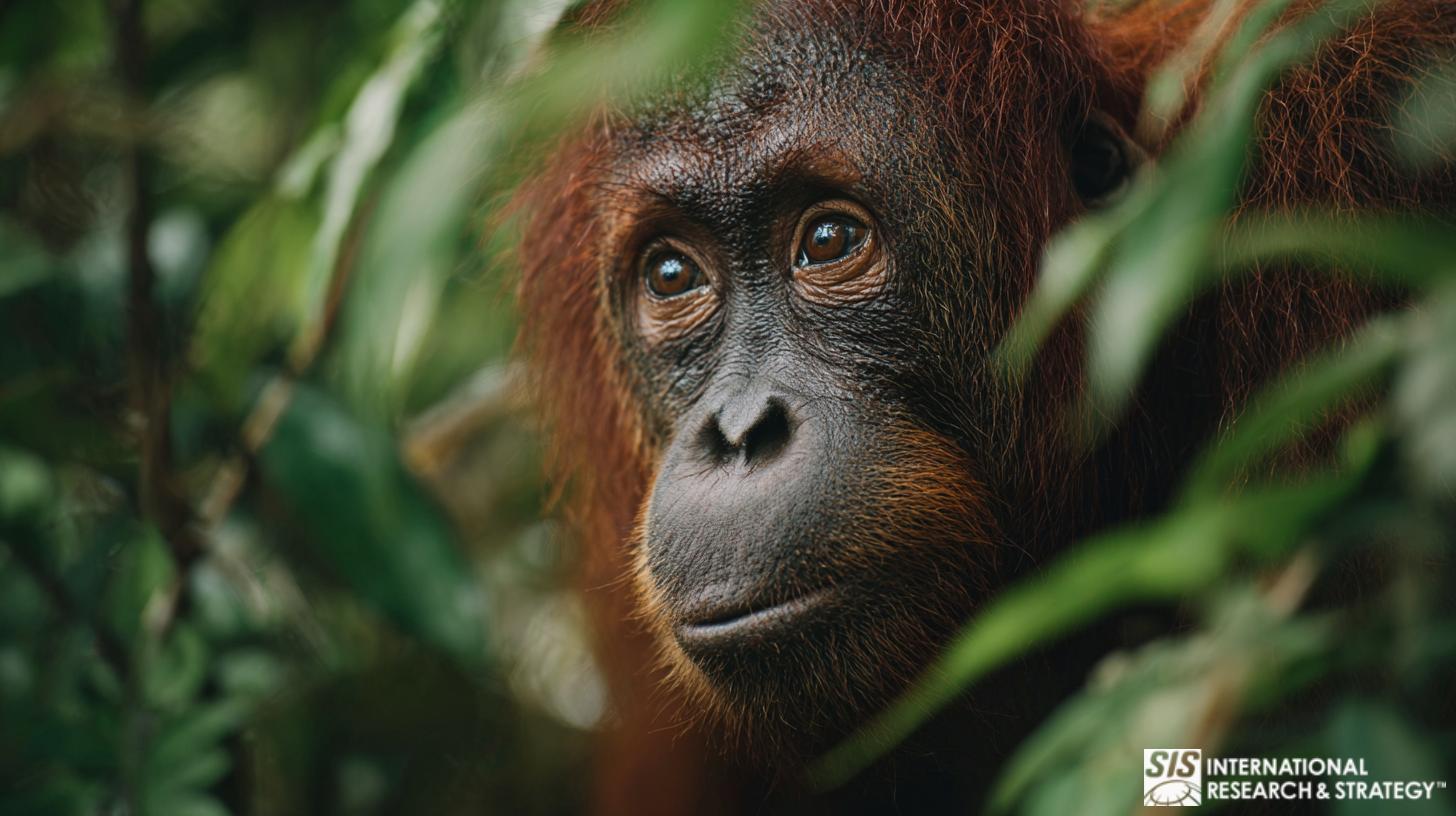Market Research in Borneo

Borneo is the largest island in Asia and the third-largest in the world. It lies in Southeast Asia near Malaysia. Its beaches and rainforests are well known. Three Southeast Asian nations occupy the island: Brunei and Malaysia are in the north, and Indonesia is to the south. Brunei is one of the world’s smallest yet richest states, with a high standard of living. Malaysian Borneo is known as East Malaysia. Indonesian Borneo is known as Kalimantan.
Table of Contents
What Is Market Research in Borneo
Market research in Borneo studies a diverse range of cultures and economic activities, as Indonesia, Malaysia, and Brunei share the island. The research focuses on understanding consumer behavior across different demographics influenced by local industries such as agriculture, tourism, and forestry.
Key Aspects:
- Economic Landscape: Borneo is rich in natural resources, including palm oil, timber, and biodiversity, which shape market trends. The region’s unique cultural diversity impacts consumer preferences and purchasing decisions.
- Methodologies: Both qualitative (focus groups, interviews) and quantitative (surveys) methods are used to gather data on consumer habits, brand awareness, and preferences, particularly in urban centers like Kota Kinabalu and Kuching.
- Challenges: Conducting effective market research involves navigating cultural differences and geographic barriers that can hinder access to rural populations. Regulatory issues related to natural resources also complicate the research landscape.
- Benefits: Market research aids businesses in recognizing emerging trends in agriculture and eco-tourism, helping them develop targeted marketing strategies that resonate with local consumers across various demographic groups.
Why is Borneo Important?
Borneo is one of the most protected areas worldwide. Its forests are diverse and can produce more income than the logging industry. At present, a biotech company in Malaysian Borneo is working on setting up a new bio-economy based on knowledge rather than resource usage.
Key Market Drivers and Strategic Entry Points in Borneo
| Market Segment / Region | Core Driver and Economy | Strategic Opportunity and Research Focus |
|---|---|---|
| Natural Resources | Historically dominated by **palm oil** and timber. Significant pressure to shift toward **sustainable development** and forest preservation. | Investment in **sustainable agriculture**, biotechnology, and financing development that supports rainforest conservation and minimizes fire risk. |
| Digitalization & Retail | Younger consumers (under 35) are rapidly shifting to **online buying**, a trend expected to become permanent. | Focus research on e-commerce logistics, brand awareness creation via digital platforms, and understanding the gap between consumer desire for branded goods and actual uptake due to pricing. |
| Malaysian Borneo (East Malaysia) | Benefits from Malaysia’s solid infrastructure, educated workforce, and high quality of life. | Ideal entry point for businesses requiring **stable infrastructure** and a highly skilled local employee base (e.g., advanced manufacturing or services). |
| Indonesian Borneo (Kalimantan) | Access to Indonesia’s vast population, growing middle class, trade agreements, and investment incentives. | High-volume market strategy focusing on consumer goods, low labor costs, and leveraging regional trade agreements for scale. |
| Operational Challenges | Challenging terrain (swampy/mountainous) and high cultural diversity across three nations (Brunei, Malaysia, Indonesia). | Market research must navigate **geographic barriers** and requires tailored, culturally sensitive methodologies to reach rural or remote populations effectively. |
Cities and Regions in Borneo
Samarinda, located on the banks of the Mahakam River, is the most populous city on the island and the capital of East Kalimantan, an Indonesian province.
Banjarmasin is the second-biggest city and part of the South Kalimantan province. It’s on a delta island near the spot where the Barito and the Martapura Rivers meet.
Kuching is the third-largest city on the island and the most populous city in the Malaysian state of Sarawak. It is on the banks of the Sarawak River and has an area of 166 square miles.
Market Trends
Eco businesses can thrive as the island continues to protect its forests. It has engaged in efforts to preserve Bornean orangutans. Campaigns that teach the public about how vital it is to protect these animals are also helpful. In fact, the island has declared a fatwa (Islamic religious ban) on illegal trafficking of these apes. It’s the first-ever fatwa proclaimed to protect endangered species. The island is also home to some bio-diverse tropical forests. This asset can be a further boon for eco-tourism investors.
Frequent forest fires continue to be an issue. In many areas of the world, such blazes play a vital role in forest ecosystems. But that is not the case for tropical rainforests. In any case, it’s rare for tropical rainforests to burn due to dampness. Yet, Borneo’s forests have been burning due to poor practices. The country needs investors to fund development that can sustain the rainforests.
Wildlife conservation is also a happy trend. As mentioned, the island has large orangutan populations in the upland forests. Habitat loss also threatens Sunda clouded leopards and the Sumatran rhino. Moreover, the loss of Bornean forests releases large amounts of carbon dioxide, which is another threat to species.
Key Industries

Oil palm took off in Borneo in the mid-1990s. Today, Malaysia is the world’s largest producer of palm oil. In 1960, the country grew 60,000 hectares of oil palm, and by 2001, this figure had grown to 3 million hectares. One-third of the oil palm plantations are in Sabah, in the northeast. Sabah has the ideal climate for growing the plant.
Both Malaysia and Indonesia are seeking to expand their timber plantations. Yet, both the oil palm and the timber industries spell trouble for the island. Growers and loggers have cleared, fragmented, and degraded Borneo’s forests. Oil palm and wood-pulp plantations threaten the island’s ecology.
The clearing of forests began in earnest in the middle of the last century. It started with the setting up of rubber plantations though these had a limited impact. Logging rose in the 1970s and grew in the 1980s. During that time, Malaysia depleted its mainland forests. Meanwhile, former Indonesian strongman Suharto gave away large tracts of forest. Most of these tracts went to army generals to cement political ties. This action led to even more denuding of the forests in the 1980s. The island is now under global forest watch as it strives to rebuild its forest cover.
Consumer Base
In Borneo, gaps exist between consumers’ wishes and the actual uptake of branded products due to higher prices. People under 35 have also shifted to online buying due to the recent pandemic. Researchers foresee this shift becoming a permanent feature, as many Borneans continue using digital platforms even after things return to normal.
Reasons to Grow Your Business in Borneo
Are you aiming to do business in the Malaysian states? Malaysia is one of the strongest countries in the Asia Pacific Region. It has a solid infrastructure, a well-educated workforce, and affordable, high-quality living.
The Indonesian side will give you access to trade agreements and investment incentives. Another great thing about Indonesia is its vast population. Its middle class is growing, and it has low labor costs.
Like Malaysia, Brunei is a stable country with a favorable tax policy. Other pluses are the strong oil and gas industry and excellent regional connections.
The island of Borneo is also biodiverse and home to more than 1,400 types of animals. However, there are some issues, such as the terrain, which is often swampy or mountainous. Yet, the island has a lot of potential for growing and sustaining profitable business ventures.
Our Facility Location in New York
11 E 22nd Street, Floor 2, New York, NY 10010 T: +1(212) 505-6805
About SIS International
SIS International offers Quantitative, Qualitative, and Strategy Research. We provide data, tools, strategies, reports, and insights for decision-making. We also conduct interviews, surveys, focus groups, and other Market Research methods and approaches. Contact us for your next Market Research project.

